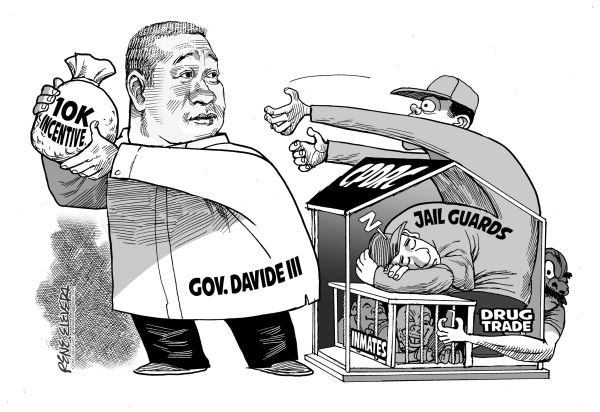
What to make of President Rodrigo Duterte’s signing into law the government subsidy for tuition of students in state universities and colleges (SUCs)?
The President himself admitted to the media that he signed the law even if it has no budget allocation. Budget Secretary Benjamin Diokno, who was among those who opposed subsidizing tuition in SUCs, said it would cost the government P100 billion to finance the subsidy, which the government can ill afford.
In came Sen. Panfilo Lacson who said the administration can actually subsidize free tuition, saying the pork barrel funds can be instead be used for the program that the President considers as one of the cornerstones of his social development policy.
In fact, President Duterte said he signed the law because, as Senior Deputy Executive Secretary Menardo Guevarra said, the long-term benefits of subsidized college education far outweigh any current budgetary challenges.
Lacson’s proposal isn’t the most creative, but it is the most obvious for his part since he was among those who long advocated for the abolition of the pork barrel and he, along with the late senator Joker Arroyo, were the only two senators who have not availed of the pork barrel funds assigned to their office.
And if the good senator is to be believed, pork barrel funds in billions of pesos are embedded right within the Duterte administration’s trillion-peso budget and are currently dubbed as “congressional insertions.”
Wherever the pork may be, the country’s legislators should show their commitment to the Duterte administration’s subsidized college education program by allocating a portion, if not all, of their “congressional insertions” into it — provided they haven’t committed it yet to infrastructure projects like basketball courts, or as Lacson put it, “bridges that lead to nowhere.”
But while militant student groups may loathe to cheer Lacson for his proposal owing to his dark past, they may even hate him more with his follow up proposal that only “poor but deserving” students and not juvenile delinquents or freeloaders should be subsidized by the government.
Which is actually a blunt but fair point to begin with, regardless of the constant and persistent demands by militant students that college education should be subsidized in all levels.
In pushing for the law, proponents told skeptical Palace officials like Diokno that subsidizing college education for the poor but deserving students is a sound investment to the country’s future.
And considering that the government finds it difficult to source funds for the subsidized college education program, student beneficiaries should work hard and prove to themselves, to their parents, to the government and to the taxpayers, that they deserve to be supported in their journey to complete their education.